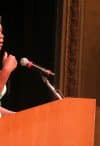
She Works Like a Man; If a Woman’s Word
is a criminal defense attorney practicing in San Juan, Puerto Rico. | more…

Linda Backiel is a criminal defense attorney practicing in San Juan, Puerto Rico. | more…
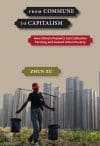
In the early 1980s, China undertook a massive reform that dismantled its socialist rural collectives and divided the land among millions of small peasant families. Known as the decollectivization campaign, it is one of the most significant reforms in China's transition to a market economy. From the beginning, the official Chinese accounts, and many academic writings, uncritically portray this campaign as a huge success, both for the peasants and the economy as a whole. This mainstream history argues that the rural communes, suffering from inefficiency, greatly improved agricultural productivity under the decollectivization reform. It also describes how the peasants, due to their dissatisfaction with the rural regime, spontaneously organized and collectively dismantled the collective system. A closer examination suggests a much different and more nuanced story. By combining historical archives, field work, and critical statistical examinations, From Commune to Capitalism argues that the decollectivization campaign was neither a bottom-up, spontaneous peasant movement, nor necessarily efficiency-improving. | more…
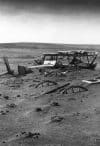
When scientists describe the increase of Dust Bowl-like conditions under climate change, they signal a particular kind of violent ecological and social change. But equally violent are the social forces, historical developments, policies, and practices that produce such massive socioecological crises in the first place. | more…
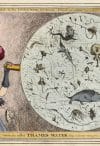
The accumulation of human excrement in nineteenth-century cities, particularly London, precipitated a historic environmental crisis—an aspect of the metabolic rift mostly overlooked in ecosocialist analysis. The solution that was finally adopted only shifted the problem out of sight, setting the stage for even greater crises in our time. | more…

During the 1960s, Cuban medicine experienced changes as tumultuous as the civil rights and antiwar protests in the United States. While activists, workers, and students in western Europe and the United States confronted existing institutions of capitalism and imperialism, Cuba faced the even greater challenge of building a new society. | more…
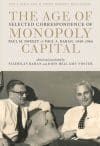
Paul A. Baran (1910–1964) and Paul M. Sweezy (1910–2004) were two of the most creative and influential Marxist economists of the last century. The Age of Monopoly Capital collects hundreds of letters between Baran and Sweezy, written between 1949 and Baran’s death in 1964. The correspondence contains numerous interesting, important, and unanticipated ideas. Nuggets of wisdom about economic theory, socialist history, dialectical method, academic politics, and many other topics are scattered throughout. | more…
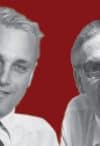
Instead of theory, early U.S. radicals excelled in reportage, like John Reed’s Ten Days That Shook the World, or fiction, like Upton Sinclair’s packing-house shocker The Jungle. To Europeans American thought seemed impermeable to the difficult ideas of Marxism. That changed with the founding of Monthly Review in 1949, which marked a newly realized if not entirely new trend in American Marxist thought. | more…
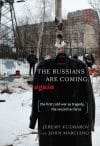
Karl Marx famously wrote in The Eighteenth Brumaire of Louis Napoleon that history repeats itself, “first as tragedy, then as farce.” The Cold War, waged between the United States and Soviet Union from 1945 until the latter's dissolution in 1991, was a great tragedy, resulting in millions of civilian deaths in proxy wars, and a destructive arms race that diverted money from social spending and nearly led to nuclear annihilation. The New Cold War between the United States and Russia is playing out as farce—a dangerous one at that. The Russians Are Coming, Again is a red flag to restore our historical consciousness about U.S.-Russian relations, and how denying this consciousness is leading to a repetition of past follies. | more…
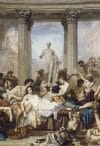
Revolution is still on the agenda for the global periphery. Restorations in the course of socialist transition are not irrevocable—and in the weak links of the center, breaks in the imperialist front are not inconceivable. | more…
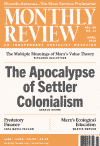
Building on Marx’s own open-ended critique, three revolutionary new developments have recently arisen in Marxist theory, addressing social reproduction, the expropriation of nature, and racial capitalism. | more…
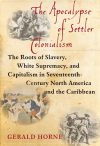
Virtually no part of the modern United States—the economy, education, constitutional law, religious institutions, sports, literature, economics, even protest movements—can be understood without first understanding the slavery and dispossession that laid its foundation. To that end, historian Gerald Horne digs deeply into Europe’s colonization of Africa and the New World, when, from Columbus’s arrival until the Civil War, some 13 million Africans and some 5 million Native Americans were forced to build and cultivate a society extolling “liberty and justice for all.” | more…
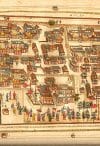
The decline of Western dominance over the capitalist world system and the concurrent rise of Asia demand a deconstruction of the accepted wisdom of economic history. Understanding the legacy of Eurocentrism in both the rise of capitalism and its historiography is necessary if we are to challenge the dominant discourse and ideological assumptions of the so-called “European miracle.” | more…
Notifications